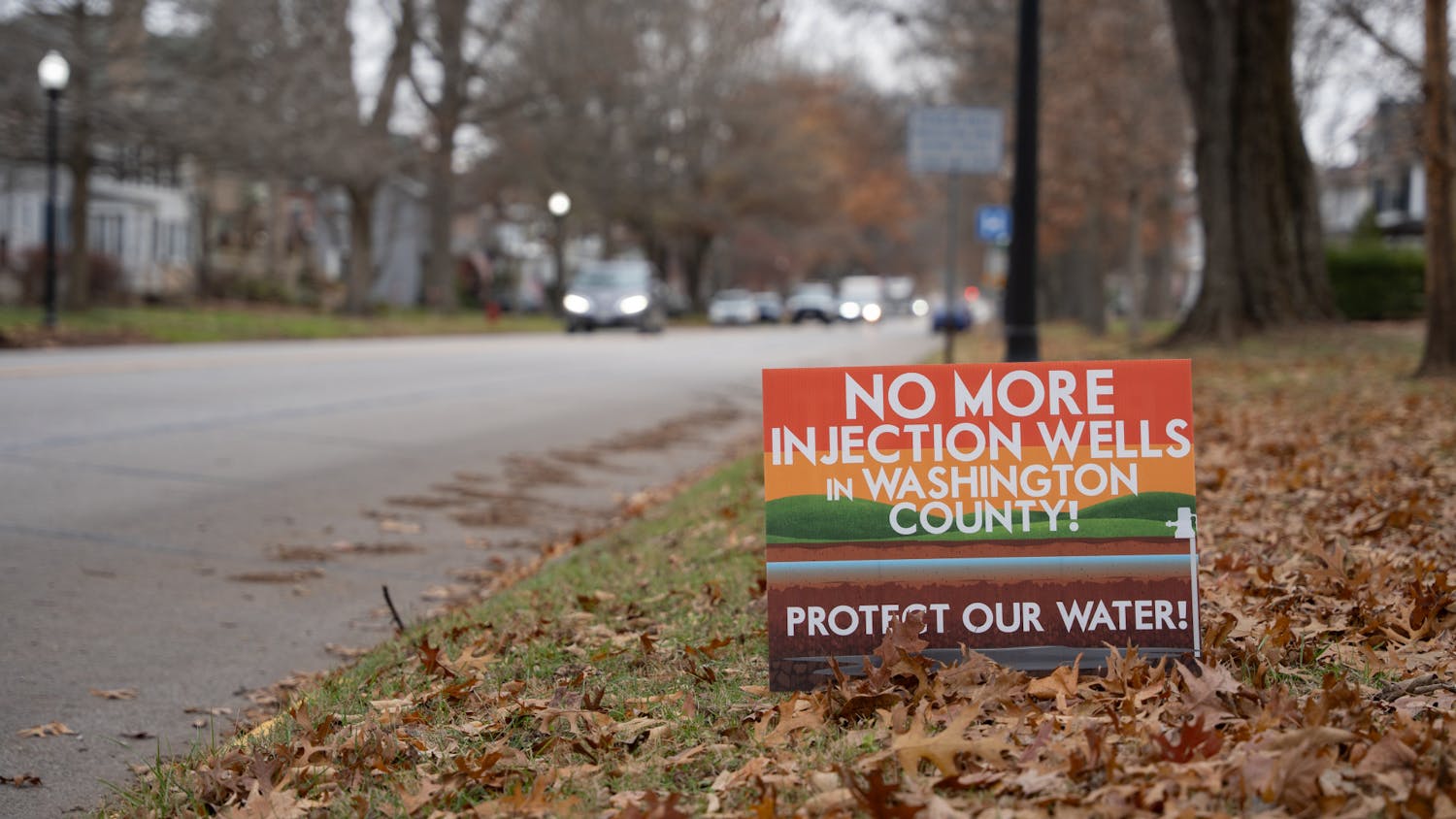The city council members of Fort Collins, Colo., recently voted in favor of a citywide ban on fracking and waste disposal operations.
Fort Collins’ act of defiance against Colorado state law is a risk Athens City Council members are not willing to take.
In a 5-2 vote on March 5, Fort Collins City Council voted on an ordinance to ban fracking and waste disposal within city limits despite the fact that state law governs the oil and gas industry. Now, Fort Collins is facing possible legal action from the state and oil and gas companies, according to The Coloradoan, the city’s newspaper.
Colorado Gov. John Hickenlooper said if the ban were passed, the state would sue the city, according to the article.
“I believe the governor should spend his time protecting the health and safety and welfare of citizens of Colorado rather than acting like the chief lobbyist for the oil and gas industry,” said Fort Collins City Councilman Kelly Ohlson in the article.
This past November, the Bill of Rights Committee, an anti-fracking group of Athens residents, approached Athens City Council requesting an ordinance be added to the ballot that would place a citywide ban on fracking operation and waste disposal.
Council denied voting to put the ordinance on the ballot themselves but seemed to be supportive of a citizen petition initiative to get the ordinance on the ballot, said Richard McGinn, member of the Bill of Rights Committee.
“They basically said, ‘We don’t want to do it; we want you to do it,’ ” McGinn said. “They knew it was possible, but they didn’t want to stick their necks out. It goes against state regulations, so it’s like an act of defiance.”
The initial petition would need to be signed by 1,000 qualified Ohio electors, and once it was approved, the signatures would need to total at least 10 percent of the number of people who voted in the last gubernatorial election, according to the Ohio Revised Code.
As presented by the committee, the fracking ban was not something council was going to take up at this time, said Councilwoman Chris Knisely, D-at large.
“We knew that the (Bill of Rights Committee) talked about a citizen petition, and we think that’s a good way to do this,” Knisely said. “It shows that we have a strong community.”
Knisely added that she thinks there is a sufficient interest in Athens for the Bill of Rights Committee to be successful in its petition.
If the committee can get enough signatures to put the ordinance up for a vote in November, McGinn said he would not be surprised if the Ohio state government responds the same way Colorado’s state government has.
“Gov. (John Kasich) would be very upset if we make any progress on this, and I think we’re going to,” McGinn said. “We know darn well the (state) government is going to be upset. (The governor) thinks he has the law on his side, and he’s correct, except that we are appealing to higher principles.”
McGinn said that though the state can argue about property rights laws, he believes the committee’s argument — that endangering water sources would affect everyone and not just one property owner — is a tough one to beat.
“We’re hoping to scare them off rather than take it up in court,” he said. “We don’t want to go to court; we just want to say we have rights, and property rights don’t give you the right to destroy the environment.”
ls114509@ohiou.edu






